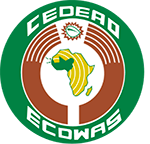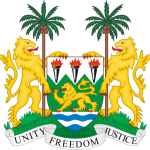Sierra Leone
Member States

Sierra Leone’s digital ecosystem is in a developing stage, with both challenges and opportunities as the country works to expand its digital infrastructure and services. Here’s an overview of the digital landscape in Sierra Leone:
1. Connectivity and Infrastructure
– Internet penetration: Around 20-25% of the population
– Mobile network: 3G and limited 4G coverage, primarily in urban areas
– Fiber optic: Limited, mainly in Freetown and some other urban centers
2. Mobile Technology Adoption
– Growing mobile phone usage, though many still use basic feature phones
– Increasing smartphone adoption, particularly in urban areas
– Mobile money services gaining traction (e.g., Orange Money, Africell Money)
3. Tech Sector
– Nascent startup ecosystem, primarily centered in Freetown
– A few tech hubs and innovation centers (e.g., Sensi Tech Hub, Innovation SL)
– Limited access to funding and technical expertise for startups
4. E-commerce and Fintech
– E-commerce sector in early stages of development
– Growing adoption of mobile money and digital payment solutions
– Challenges in logistics and digital payment infrastructure
5. Government Policy
– National Innovation and Digital Strategy (NIDS) to promote digital transformation
– Efforts to improve ICT infrastructure and digital literacy
– Focus on e-government initiatives to improve service delivery
6. Challenges
– Significant digital divide between urban and rural areas
– Unreliable electricity supply affecting digital service provision
– Limited digital literacy among the general population
– Post-conflict recovery still impacting overall development
7. Education and Digital Skills
– Growing emphasis on ICT education in schools and universities
– Limited availability of advanced digital skills training programs
– Initiatives to promote coding and tech entrepreneurship among youth
8. Innovation and Research
– Emerging focus on developing solutions for local challenges
– Limited R&D infrastructure and investment in the tech sector
9. Social Media and Online Content
– Increasing social media usage, particularly among urban youth
– Limited local digital content creation and online media industry
10. Sector Applications
– Agriculture: Potential for AgriTech solutions, but few implementations
– Health: Some initiatives in mobile health and health information systems
– Education: Growing interest in e-learning platforms and digital education tools
11. Cybersecurity
– Developing cybersecurity framework
– Need for increased awareness and capacity building in digital security
12. Telecommunications Market
– Several mobile operators competing in the market (e.g., Orange, Africell)
– Efforts to improve telecom infrastructure and services
Key strengths and opportunities
– Young population eager to adopt digital technologies
– Government recognition of the importance of digital transformation
– Potential for leapfrogging in certain technologies (e.g., mobile money)
Significant challenges
– Limited digital infrastructure, particularly in rural areas
– Low digital literacy rates
– Need for more investment in the tech sector and digital skills development
– Regulatory framework still evolving for digital businesses
Sierra Leone’s digital ecosystem is at an earlier stage compared to some of its West African neighbors. However, there is growing recognition of the potential of digital technologies to drive economic growth and improve service delivery. The country is working to overcome the challenges posed by limited infrastructure and the lingering effects of past conflicts.
Key areas of focus for development include
– Expanding mobile internet coverage and adoption
– Improving digital literacy and skills across the population
– Encouraging local tech entrepreneurship and innovation
– Implementing e-government services to improve efficiency and transparency
– Leveraging digital solutions for key sectors like agriculture, health, and education
International organizations and partnerships play a crucial role in supporting Sierra Leone’s digital development, providing expertise, funding, and capacity-building initiatives.
The Ministry of Information and Communications leads policy formulation and provides the regulatory framework for productivity in the Information, Communication and Technology (ICT) sector including telecommunications, media and film industries.

